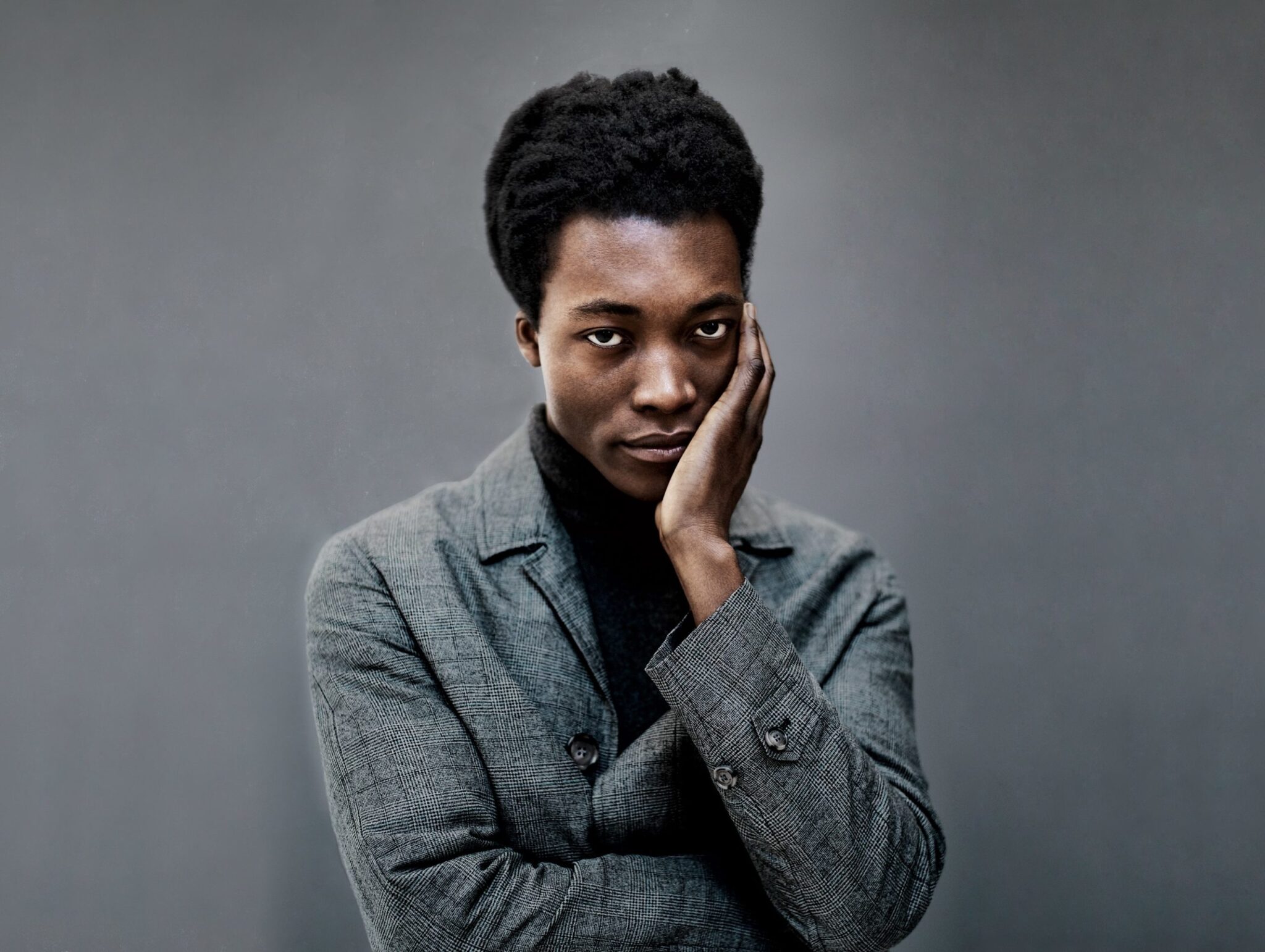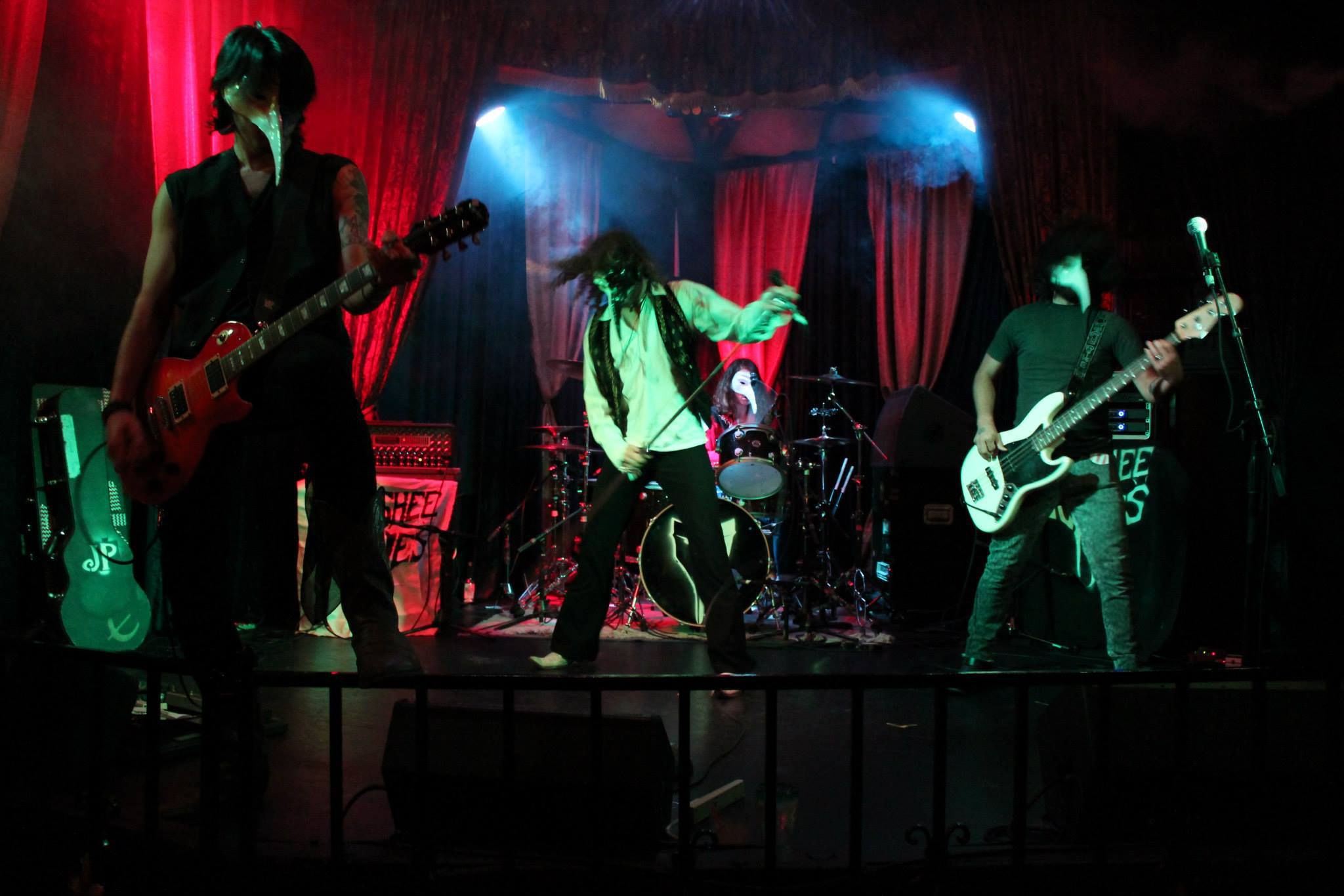
In every high school there’s that one weird kid, usually super smart, creative, or both, that no one can seem to make any sense of. They have bizarre tastes and even more bizarre habits, and you’re so fascinated by these that no one really wants to stop this kid from, say, building a real live flea circus in the cafeteria. Then you find out the kid is from some Eastern European country, and though nothing could ever explain that kid’s behaviors, suddenly they make more sense.
Poland’s Unsound Festival is the collection of events most analogous to that kid. Seeking to showcase avant-garde, experimental, underground electronic acts from all over the world, in May they unleashed a bevvy of eclectic performers on the city in as many as twenty events and panel discussions over the course of five days. The greatest thing about Unsound is the way it appropriates government funding (Polish government funding, that is) to introduce Central and Eastern European acts to the US that otherwise could never visit or tour here. They take that ethos one step further and present them in expertly curated collaborations with US artists of similar ilk. This is the third year that Unsound has brought its extraordinary program from Minsk to NYC, and this year’s acts remained challenging if still rooted in the melodic and danceable aspects of electronic experimentation.
[fusion_builder_container hundred_percent=”yes” overflow=”visible”][fusion_builder_row][fusion_builder_column type=”1_1″ background_position=”left top” background_color=”” border_size=”” border_color=”” border_style=”solid” spacing=”yes” background_image=”” background_repeat=”no-repeat” padding=”” margin_top=”0px” margin_bottom=”0px” class=”” id=”” animation_type=”” animation_speed=”0.3″ animation_direction=”left” hide_on_mobile=”no” center_content=”no” min_height=”none”]

I was only able to see two performances, but they were both noteworthy. On Thursday, Lincoln Center’s David Rubenstien Atrium hosted a free Peaking Lights show with openers LXMP. LXMP are two guys from Warsaw whose love of synths and robotic vocals seemingly informs everything they do; for the showcase they covered Herbie Hancock’s Future Shock with bits of evocative improvisation. I’ve had a bit of trouble listening to the band’s original material; the music on their myspace (which still exists!) and a video posted to Unsound’s facebook makes them seem like a hardcore electronic noise band much more abrasive than the band I saw. On the one hand, the freeform electro-funk of Hancock’s breakthrough ’83 album seems like a good fit for a band like LXMP, who also eschew more straightforward composition. On the other hand, their interpretations bordered a level of cheesiness possibly stemming from the fact that Future Shock, while a landmark in the melding of electronic elements with jazz sensibility, is now thirty years old and thus a bit dated. If nothing else, though, seeing this band pay homage to a record that influenced them and likely hundreds of acts within the genre offered a sense of perspective, and it was entertaining to see LXMP’s enthusiasm, whether it was due to a love of Hancock or giddiness at playing a show in the US.
Peaking Lights was a definite change of pace, the only real similarity being a fetishistic adoration for vintage synths. I’d seen them play a great set at SXSW that was unfortunately neutered by time constraints, so I was hoping for a more extended set list that – fingers crossed – included expansive love anthem “Amazing & Wonderful”. Again, I was denied, but can forgive the band that fact since their focus is clearly shifting to the upcoming release of their latest album Lucifer, which will likely explore the utmost depths of bleary, slowed disco beats. Rainbow-toned lights arced behind Indra Dunis and Aaron Coyes while their beats bounced from polished surfaces. The narrow, high-ceilinged space was filled to its capacity but much of the audience was seated in roped-off sections which made the whole thing seem a little more orchestrated than the nonchalant approach Peaking Lights takes to making sounds. But in its own way, the Rubenstien Atrium provided an interesting context to that music, making a museum exhibit of the unorthodox, analogue practices of the artists. I even spotted Coyes Instagramming a snapshot of the space before the show. The more I see this band, the more in love with them I fall; there are very few acts making music this intoxicating. Watching Dunis lope around the stage, sometimes with percussive instruments, at other times making loops with a tiny keyboard, while Coyes hunches over synths and oscillators and cassette decks feels like a glimpse into their creative lifestyle – you get the sense that this is just what they do on weekday nights around the house as a married couple. Even if I never see “Amazing & Wonderful” live I’ll attend their shows whenever I have the chance.
[/fusion_builder_column][fusion_builder_column type=”1_1″ background_position=”left top” background_color=”” border_size=”” border_color=”” border_style=”solid” spacing=”yes” background_image=”” background_repeat=”no-repeat” padding=”” margin_top=”0px” margin_bottom=”0px” class=”” id=”” animation_type=”” animation_speed=”0.3″ animation_direction=”left” hide_on_mobile=”no” center_content=”no” min_height=”none”][jwplayer mediaid=”789″]
The next time I ventured out for an Unsound event was the following Sunday, which arrived after an exhausting weekend of working (and who knows what else), wrapped in a torrential downpour that almost cause me to skip the event altogether. The reason I didn’t was simple: Maria Minerva was playing the “closing party” for Unsound at Glasslands. I had a feeling that opportunities to see the Estonian hypnagogic pop chanteuse would be few and far between, and I have been moderately obsessed with her swoony, mysterious little forays into feminism, philosophy, and rough sex since Not Not Fun put out Cabaret Cixous last year. The label (and its offshoot, 100% Silk, which released a more recent EP entitled Sacred & Profane) are a great fit for Minerva’s music, which sounds like it’s swirling out from the bottom of a deep, dark well and then being transmitted into space. Her echoing vocals and relatively lo-fi set-up is part of that carefully constructed deconstruction, and her lyrics at once high-minded and rooted in mirroring the vapid pop lyrics of contemporary female icons like Britney Spears and Katy Perry.

On stage, it helps to keep this in mind, because if you didn’t know how highly educated she actually is, you’d think she learned English by listening to the same five pop songs. The lyrics are redundant, fixated pointedly on a singular subject or phrase and sung like mantras. She even borrows lyrics from aforementioned pop chanteuse Spears, expanding her lovesick repertoire to The Kinks’ “You Got Me” (or possibly referencing Salt-n-Pepa’s “Push It”), her voice despondent over orgasmic samples.
Like many electronic musicians who have not fully imagined a live performance before playing out, she stood awkwardly behind a table of electronics while a projector either illuminated or obscured her pretty, elfin features and bony frame. When she emerged from behind her equipment, it was to perch provocatively on a chair to stage right, or sometimes flail her svelte limbs. She seemed a bit nervous or uncomfortable with the material and the effects which make her voice so ghostly and layered when recorded didn’t translate as well in a live setting.
That being said, there’s still something fascinating about seeing her vulnerability on stage; I’m not entirely convinced that these supposed detractors weren’t a rehearsed part of the performance. So much of her music is about exploring a wilting image of helpless femininity, power stripped by emotion or desire. Minerva is exploring women’s supposed inability to think deeply when overtaken by repetitive thoughts regarding the external world and those who affect us emotionally or sexually, her music most concerned with the moment where our creative explorations become blocked by the expectations of others. Helene Cixous, the French philosopher, poet, and playwright for which Minerva’s album is named, explored the idea of emancipating women from male-centric language in her influential piece The Laughing Medusa, encouraging women instead to use their bodies as a new way of communicating. Punctuating Minerva’s reluctant postures were bursts of defiant confidence, though in the next moment she’d shy away from the crowd, shaking her head back and forth as if being reprimanded or secretly admonishing herself. Perhaps, if this struggle was not solely performative, those in the audience were witness to her public catharsis, a possibility that is certainly compelling. Minerva is a protege of Amanda Brown’s and it was difficult not to think of an LA Vampires performance I saw last November at Shea Stadium, where Brown shimmied unabashedly like a woman possessed, not just through her own set but through her 100% Silk’s labelmates’ sets as well. Perhaps with Brown as an ally Minerva can find a mode of expression as boisterous and provacative. It is certain that when she does, promoters such as those behind Unsound Festival will be there to embrace and nurture it, not stifle or block it.
[jwplayer mediaid=”790″]
[/fusion_builder_column][/fusion_builder_row][/fusion_builder_container]




